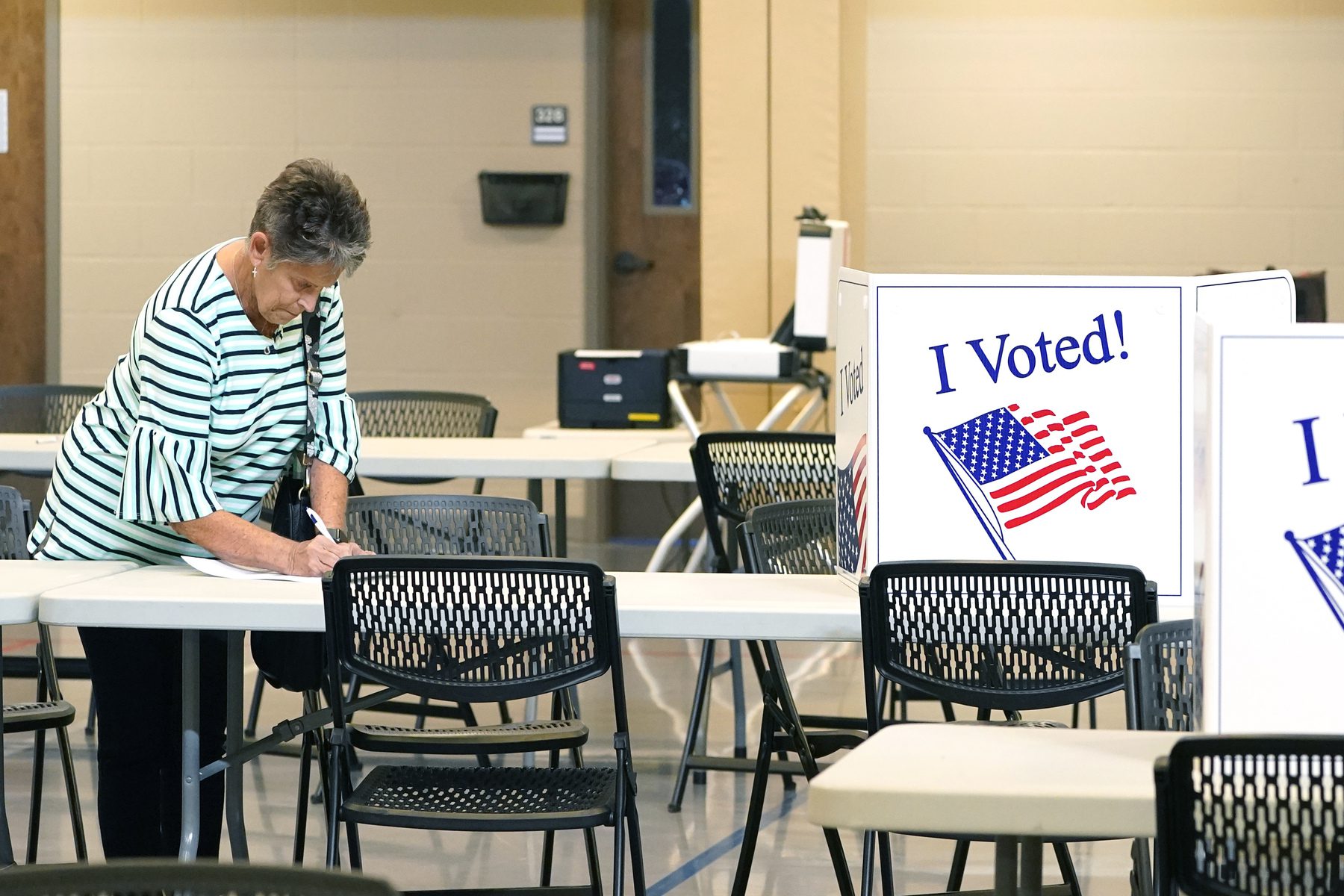We’re making sense of the midterms. Subscribe to our daily newsletter for election context and analysis.
Alaska voters sent three out LGBTQ+ candidates to the state legislature, leaving just two states that haven’t elected even one: Louisiana and Mississippi.
This lack of representation persists even after a year in which out LGBTQ+ candidates ran and won up and down the ballot across the country, based on numbers from Victory Fund, which helps LGBTQ+ candidates run for office. Democrat Keturah Herron, who won a special election early this year in Kentucky, is the state’s first out queer person elected to the state house — and Democrat Erick Russell of Connecticut this month won the race for treasurer, becoming the first Black LGBTQ+ person ever elected to statewide office in the country. The first out lesbian governors were also elected in Oregon and Massachusetts.
Both Louisiana and Mississippi lack LGBTQ+ political representation. Last year, Mississippi took the title of being the only state in the country to never elect an out LGBTQ+ person into any office. Louisiana has two out LGBTQ+ elected officials — a metropolitan council member in Baton Rouge and city council member in Alexandria, Louisiana, both of whom will stay in office past 2023. Davante Lewis, running to be the public service commissioner for the state’s third district, is heading to a runoff in December.
“We’ve come close to electing folks on school boards in New Orleans, close to the council in New Orleans. And we just haven’t been able to break through. And so we’re gonna be working hard to do that,” said Sean Meloy, vice president of political programs at Victory Fund. The organization plans to push candidate recruitment in both states next year, he said.
In 2020, the Williams Institute at the UCLA School of Law estimated that at least 79,000 queer people live in Mississippi and 139,000 in Louisiana.
LGBTQ+ southerners have worked for years outside of elected office to help the community from within. Queer people living in the South, including in Louisiana and Mississippi, face high and persistent poverty rates and have fewer legal protections when experiencing discrimination in health care or violence on the street than in other areas of the country, per a recent analysis from the Movement Advancement Project, which tracks LGBTQ+ policy nationwide.
Having out LGBTQ+ state lawmakers in these states — both Louisiana and Mississippi have enacted bills banning transgender students from playing on sports teams that match their gender identity, while the Louisiana House of Representatives recently revived a bill to ban discussion of sexual orientation or gender identity in some classrooms — would make a difference by putting a dissenting voice in the room, advocates said.
Being a first as a state legislator matters, said Lisa Turner, executive director of LPAC, a super PAC that funds LGBTQ+ women running for office.
“When they’re elected, it changes that dynamic,” Turner said. “It does matter. It does help. It hasn’t always prevailed,” she said, adding that there often aren’t enough out LGBTQ+ lawmakers to help change the tide on anti-LGBTQ+ bills.
After this year’s midterm elections, seven states will still have never elected any out LGBTQ+ women to their state legislature, Turner said: Indiana, New Jersey, North Dakota, South Carolina and Tennessee, in addition to Louisiana and Mississippi. Alaska left the list by electing Democrat Jennie Armstrong to the state’s 16th House District, Andrew Gray to its 20th House District and Ashley Carrick to its 35th House District. They will take office in January.
“Why we haven’t been able to get over that hump yet, I’m not sure,” she said. Overall, queer women are underestimated as political candidates, Turner said, while still being competitive and resourceful in a political playing field that gives more money, more endorsements and more support to gay men.
This year, LPAC invested heavily in primaries to try to level that playing field and to support queer women running for office, she said. Backing candidates at the local level first so they can work their way up from school boards or councils and into higher office is crucial, she said — and LGBTQ+ organizations need to grow bench-building operations in southern states.
In New Hampshire, Democrat James Roesener became the first out transgender man elected to a state legislature, meaning he will be in the highest elected office that an out trans man has ever held in this country.
The Human Rights Campaign, which projects via census data that nearly 1 in 5 voters will be LGBTQ+ by 2040, believes that broader wins for LGBTQ+ representation in office point to an inevitable swing in the right direction — especially because LGBTQ+ candidates ran in every state this year, for the first time.
“We are growing as a political force, and it’s only a matter of time before LGBTQ+ people are represented in every state legislature in the country,” Geoff Wetrosky, Human Rights Campaign national campaign director, said in an emailed statement.
Explore more stories about the midterms and their impact
Correction: An earlier version of this article misstated how many out LGBTQ+ candidates were elected in Alaska this year.






